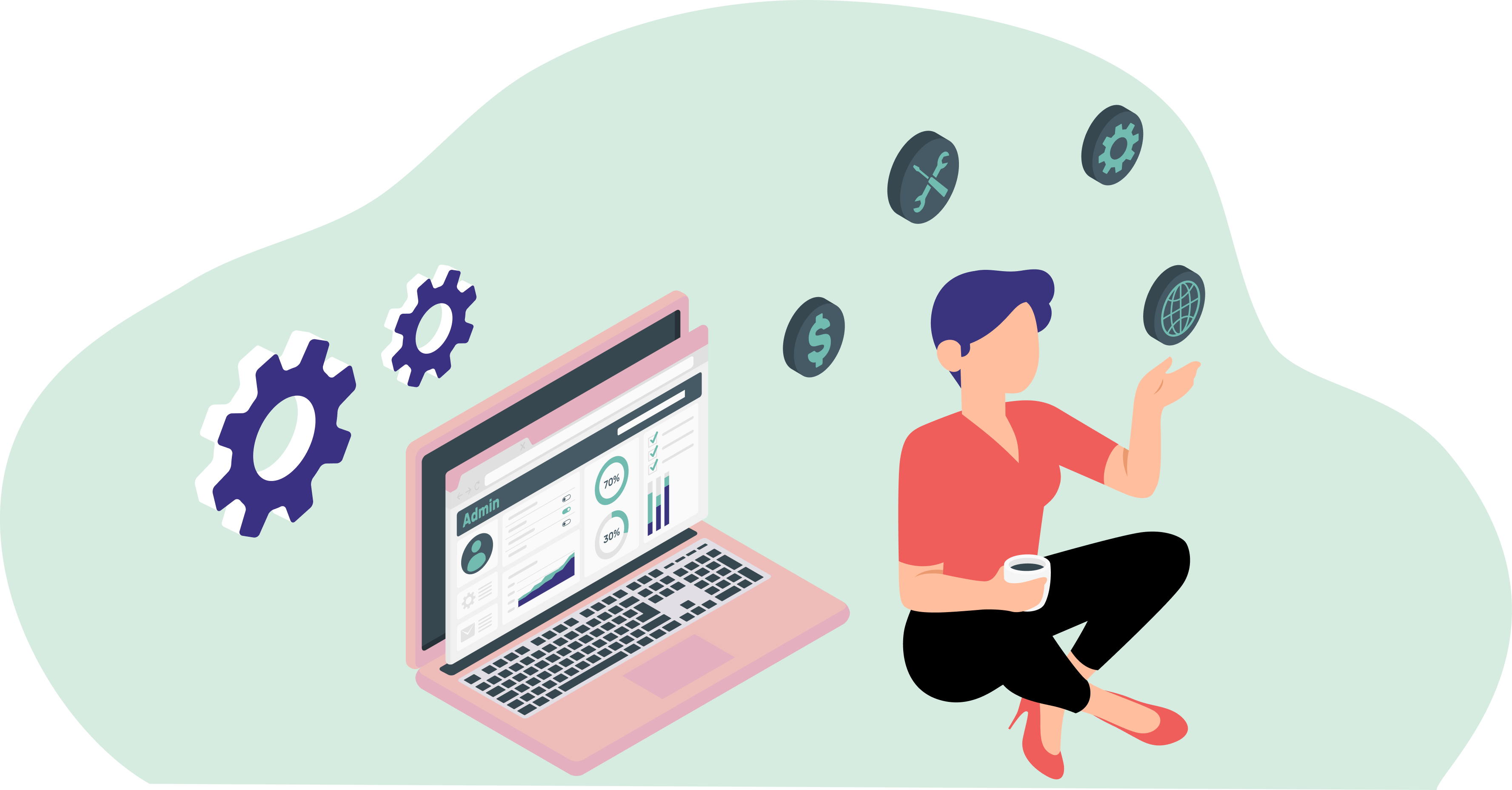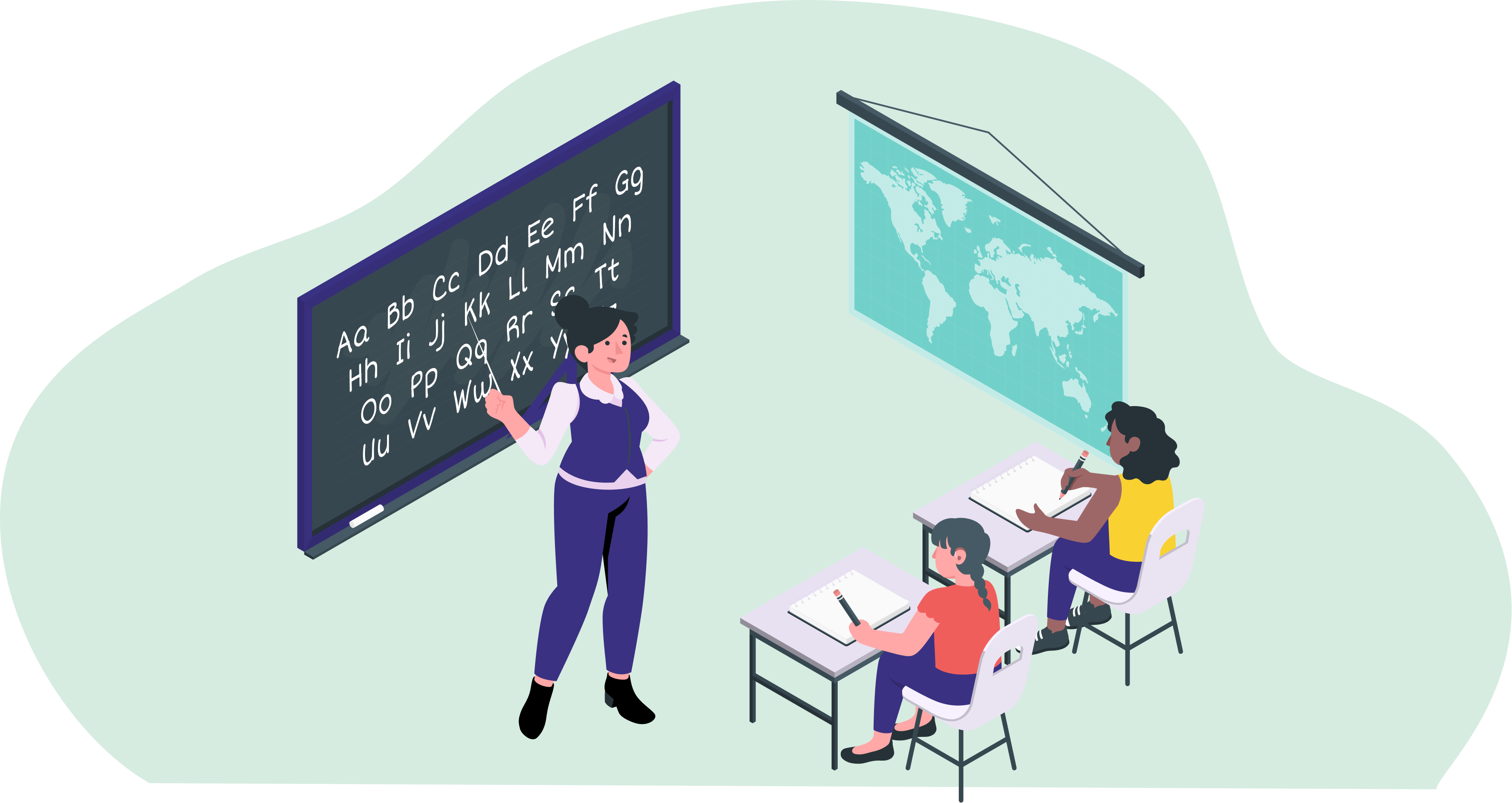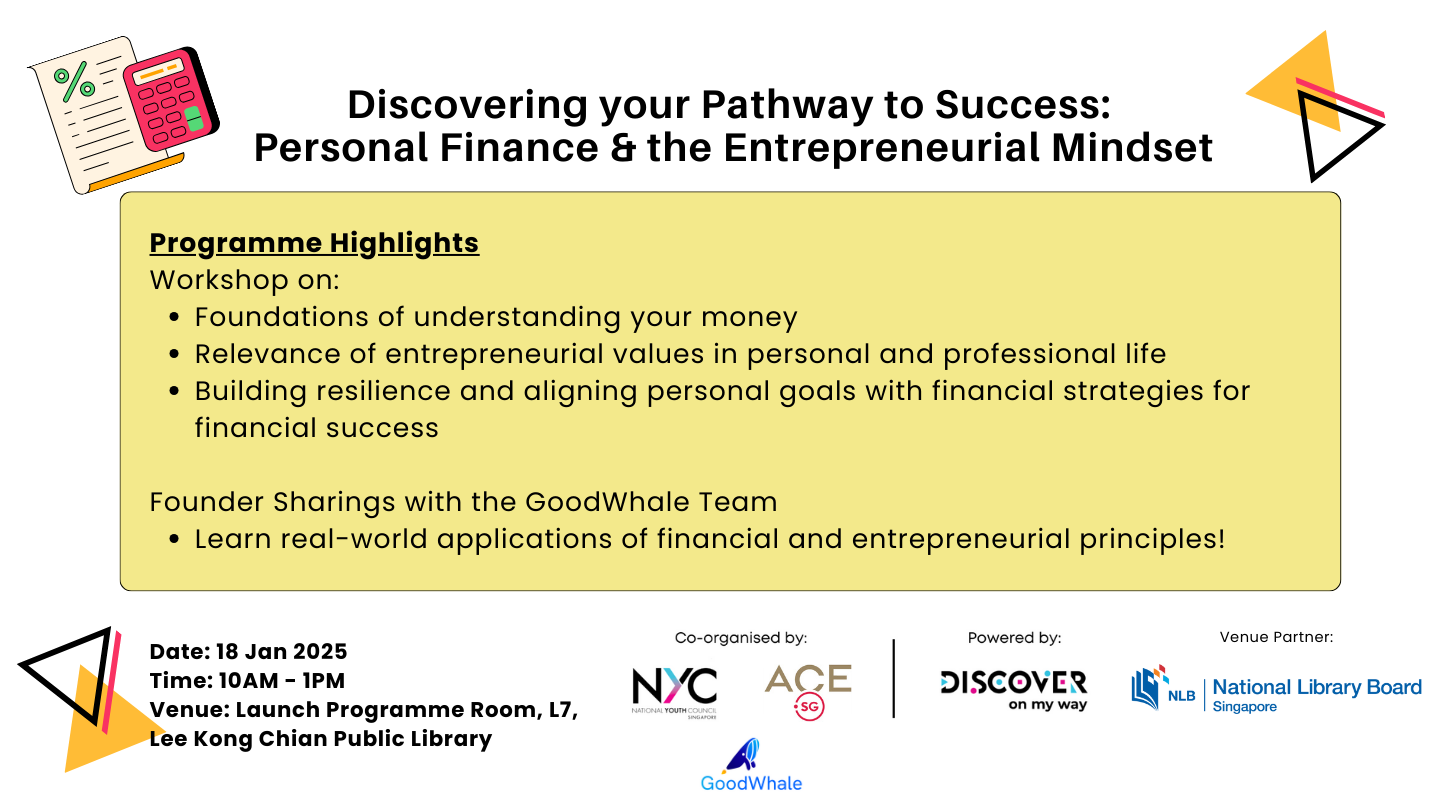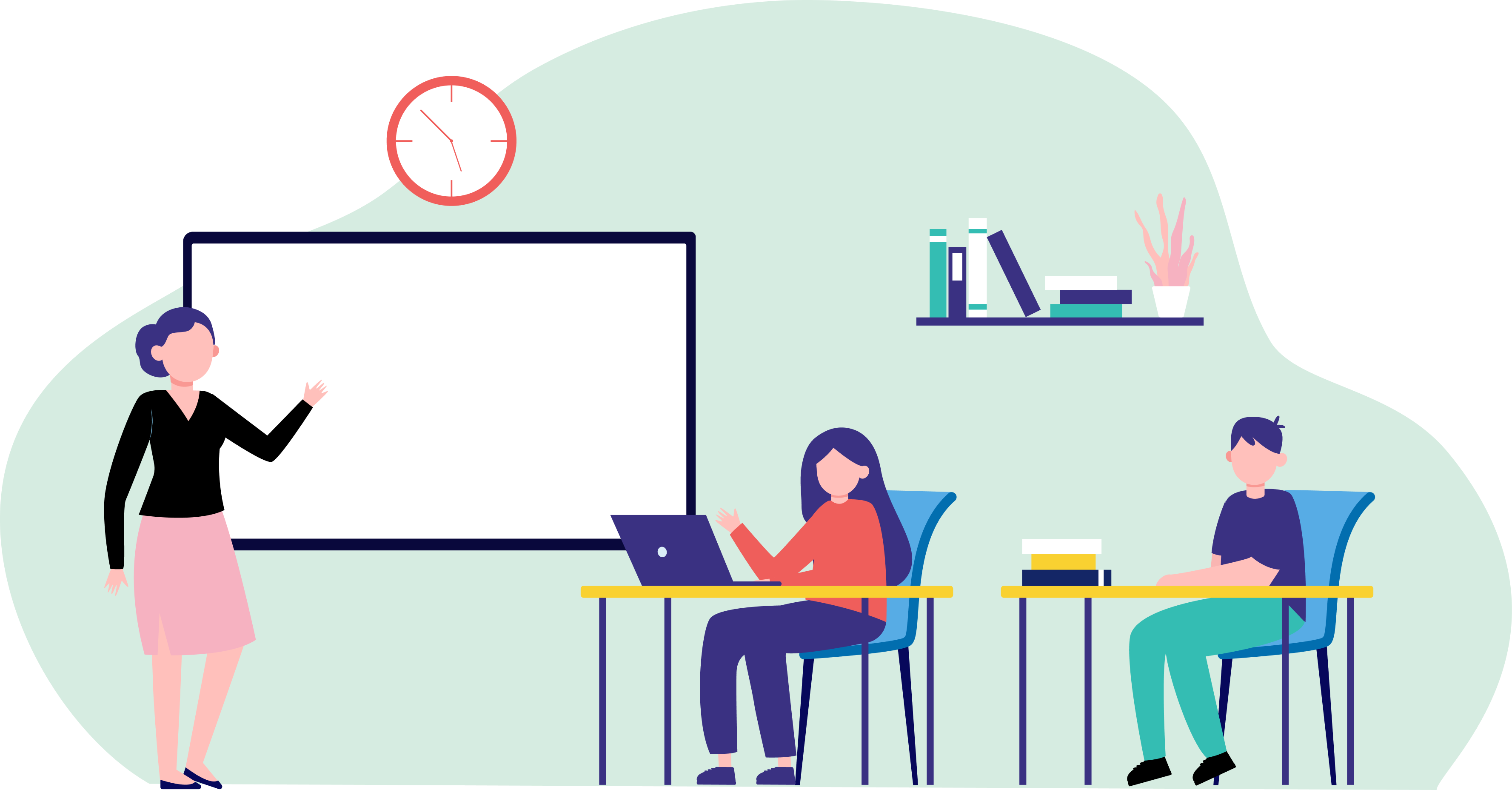
Learning Facilitators deliver lessons based on the learner's desired outcome and needs.
Learning Facilitator Job Description
- Prepare lesson plans based on learners' needs and learners' stakeholder requirements.
- Deliver content and respond to learners' queries to build good relationships and engaging learning environments.
- Support group discussions with learners.
- Collect data from learners to assess curriculum effectiveness on learners' performance.
- Review lesson plans, delivery methods, and materials to improve learning outcomes.
Note
You will have the opportunity to work in different environments based on the demands of being a Learning Facilitator.
What you should know about Learning Facilitator jobs in Singapore
Nature of Work
Similar to being a Teacher, as Learning Facilitators, you’ll work with adults and teach and construct special education programmes to impart skills like problem-solving.Key Advice
You should be prepared and willing to work 40-45 hrs/week, varying by institution.-
Entry RequirementsEntry Requirements
- A Workforce Skills Qualification (WSQ) Advanced Certificate in Training and Assessment or equivalent is preferred.
- Proficient in English, (English language at GCE 'O' Level of C6 and above, or WSQ Workplace Literacy skills of Level 6 and above)
- Be well-versed in holding discussions in groups.
-
Possible PathwayPossible Pathway
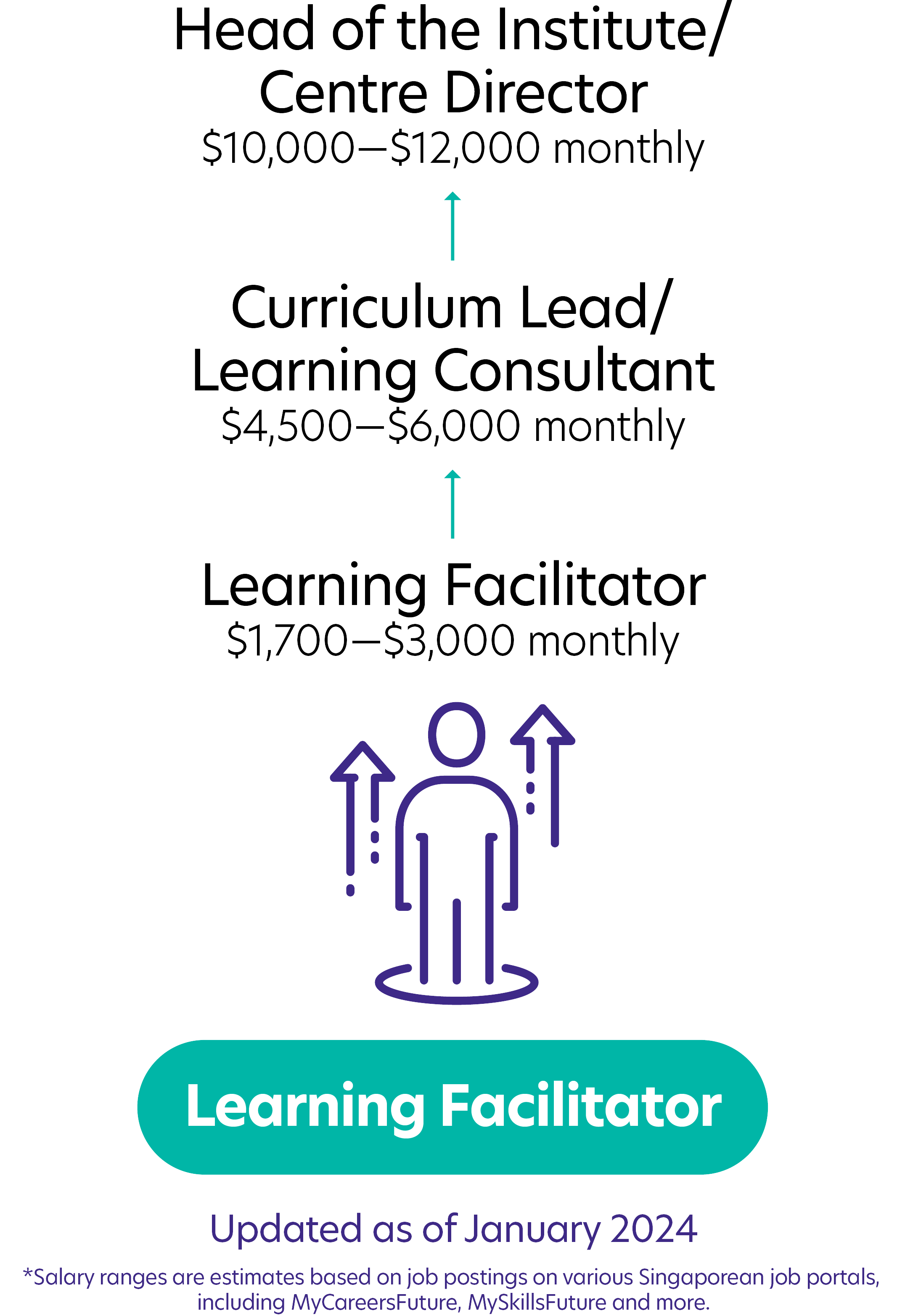
Skills you may need to pursue a Learning Facilitator career in Singapore
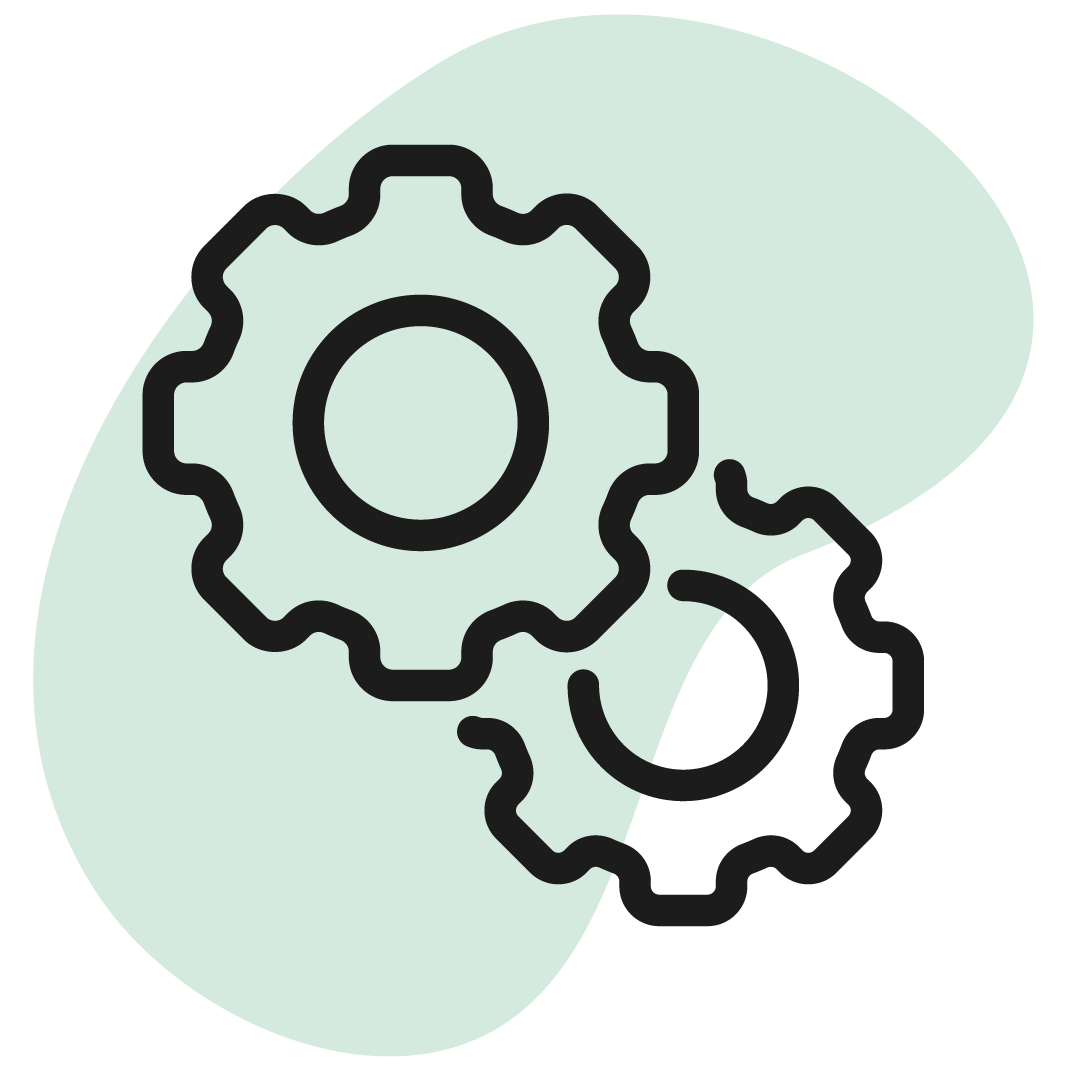 Hard Skills
Hard Skills
Coaching and mentoring
Accreditation ensures qualified guidance and adherence to professional standards.Accreditation Structure Management
Organising and managing effective, logical, and engaging learning programs.Learning Experience Evaluation
Assessing learning programs by gathering feedback and measuring outcomes.Communication
Essential for conveying information clearly, understanding learners, and facilitating discussions.Collaboration
Crucial for working with others to develop curricula and coordinate educational efforts.People Development
Motivating, inspiring, and supporting learners, focusing on skill and talent development.Explore Other Programmes
Browse AllYou have bookmarked your first item!
Find it in My Discoveries with insights on your interests!
